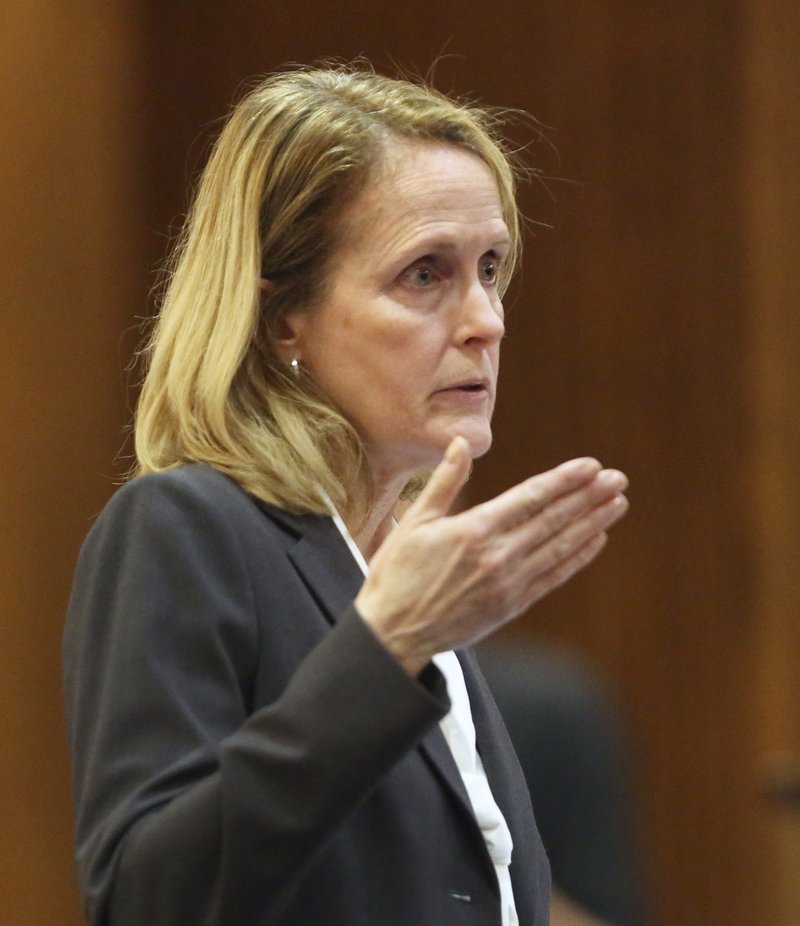TOPEKA, Kan. -- Kansas' highest court on Thursday appeared receptive to declaring for the first time that the state constitution recognizes abortion rights, with a majority of the justices skeptical of the state's argument against the idea as it defended a ban on a common second-trimester procedure.
The state Supreme Court heard arguments in a lawsuit filed by Kansas City-area, father-daughter physicians against a 2015 law that has become a model for abortion opponents in other states. The key issue is whether the Kansas Constitution protects abortion rights independently of the U.S. Constitution, which would allow state courts to invalidate restrictions that have been upheld by the federal courts.
Abortion opponents fear that such a decision by state courts could block new laws -- or invalidate existing ones -- even if the U.S. Supreme Court becomes more conservative under President Donald Trump.
Janet Crepps, an attorney for the New York-based Center for Reproductive Rights, which is representing the doctors, argued that it's important for Kansas residents to know what rights their constitution protects.
"The federal constitutional protection seems to ebb and flow with the political tide," Crepps said.
Abortion-rights supporters contend that broad language in the state constitution's Bill of Rights protects a woman's right to obtain an abortion. The Bill of Rights says residents have "natural rights" including "life, liberty and the pursuit of happiness" and that "free governments" were created for their "equal protection and benefit."
The state argues that there's no evidence that when the constitution was written in 1859, its drafters contemplated the issue in a legal environment in which abortion generally was illegal.
But four of the court's seven justices peppered state Solicitor General Stephen McAllister with questions about the state constitution currently affording no protections for abortion rights. Justice Dan Biles asked McAllister whether the state would face any limits on its power to restrict abortion, so that it could force a woman to carry a pregnancy to term even if she faced dying.
As McAllister struggled to answer, Justice Carol Beier said, "The uncomfortable answer you're trying not to give is, 'No.'"
Yet the justices appeared to struggle with what standard the state courts would use in reviewing abortion restrictions. McAllister noted that after the U.S. Supreme Court issued its landmark Roe v. Wade decision in 1973, more than four decades of contentious court battles over abortion followed.
And Justice Caleb Stegall, the only appointee of conservative Republican Gov. Sam Brownback, worried about Crepps' argument that constitutional rights evolve to reflect a changing society and "the general march of progress."
"How is this anything other than just a blank check to judges?" Stegall said.
Abortion opponents worried enough about the lawsuit's outcome that they waged an unsuccessful campaign to oust four justices from Kansas' highest court in last year's election, including Beier and Biles.
Six justices were appointed by Democratic or moderate Republican governors. The justices have faced strong criticism in the past from the Republican-controlled Legislature and Brownback over past rulings in a variety of cases.
The Kansas law at issue bars physicians from using forceps or similar instruments on a live fetus to remove it from the womb in pieces, using the nonmedical term "dismemberment abortion" to describe the procedure. Such instruments are commonly used in dilation and evacuation procedure, which the Center for Reproductive Rights has described as the safest and most common abortion procedure in the U.S. in the second trimester.
The Kansas law was model legislation drafted by the National Right to Life Committee. The group says similar bans have been enacted in six other states -- Alabama, Arkansas, Louisiana, Mississippi, Oklahoma and West Virginia.
A Section on 03/17/2017
